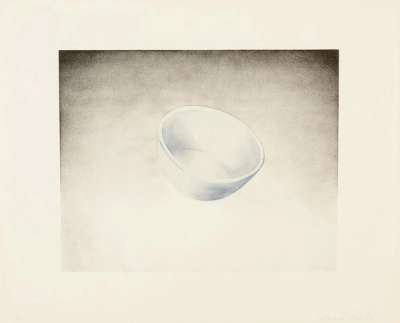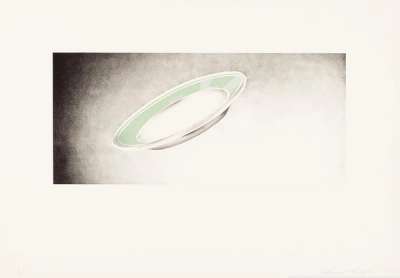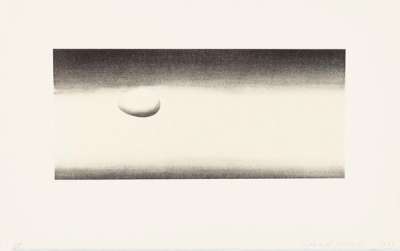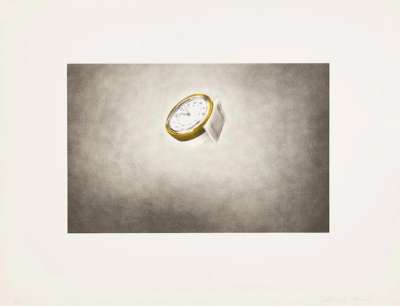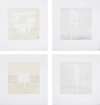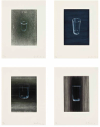Domestic
Tranquility
Ed Ruscha's Domestic Tranquility, a lithograph print series created in 1974, presents a contemplative exploration of household items, Bowl, Clock, Egg, Plate, each rendered with a sense of isolation against a vacant backdrop. This series artfully navigates the dualities of peace and tension within both domestic and broader societal contexts, exemplifying Ruscha's masterful interplay between visual imagery of the everyday and conceptual narrative.
Ed Ruscha Domestic Tranquility For sale
Domestic Tranquility Value (5 Years)
With £13744 in the past 12 months, Ed Ruscha's Domestic Tranquility series is one of the most actively traded in the market. Prices have varied significantly – from £541 to £3921 – driven by fluctuations in factors like condition, provenance, and market timing. Over the past 12 months, the average selling price was £1963, with an average annual growth rate of 2.7% across the series.
Domestic Tranquility Market value
Auction Results
| Artwork | Auction Date | Auction House | Return to Seller | Hammer Price | Buyer Paid |
|---|---|---|---|---|---|
 Egg Ed Ruscha Signed Print | 21 Feb 2026 | Palm Beach Modern Auctions | £1,658 | £1,950 | £2,450 |
 Bowl Ed Ruscha Signed Print | 10 Feb 2026 | Phillips New York | £1,700 | £2,000 | £2,850 |
 Clock Ed Ruscha Signed Print | 10 Feb 2026 | Phillips New York | £1,828 | £2,150 | £3,000 |
 Plate Ed Ruscha Signed Print | 10 Feb 2026 | Phillips New York | £1,360 | £1,600 | £2,250 |
Sell Your Art
with Us
with Us
Join Our Network of Collectors. Buy, Sell and Track Demand
Meaning & Analysis
Domestic Tranquility by Ed Ruscha stands as a significant exploration within the artist's oeuvre, exploring cultural identity through the depiction of everyday household items. Each lithograph in the series, Bowl, Clock, Egg, Plate, features an item seemingly suspended in space, a presentation that removes these mundane objects from their domestic context, elevating them as symbols of broader thematic inquiry. The series title itself, Domestic Tranquility, evokes a layered interpretation; on one level, it suggests a serene home life, while on another, it is a term which connotes a nation's desire for peace and stability, free from external threats. The political associations with the title of the series encourages an inquiry into how we are culturally defined by the material objects which occupy our homes.
This duality encapsulates Ruscha's fascination with the interplay between text and visual language, a hallmark of his artistic practice. By choosing objects that are quintessentially domestic, Ruscha prompts a reflection on the role of the ordinary in shaping our cultural identities and societal structures. The isolated presentation of each item against the void of the picture plane further accentuates this inquiry, inviting viewers to consider how the items function and relate to us when they are removed from the settings in which we familiarly place them.
Ruscha's work consistently blurs the boundaries between pop art and conceptual art, and Domestic Tranquility is no exception. Through this series, he explores the tension between the tangible and the symbolic, challenging perceptions of everyday life and its undercurrents of tranquility and unrest. The juxtaposition of the commonplace with profound conceptual themes reflects Ruscha's unique ability to render the familiar unfamiliar, thereby uncannily engaging with broader questions of identity, culture, and the politics of space.
